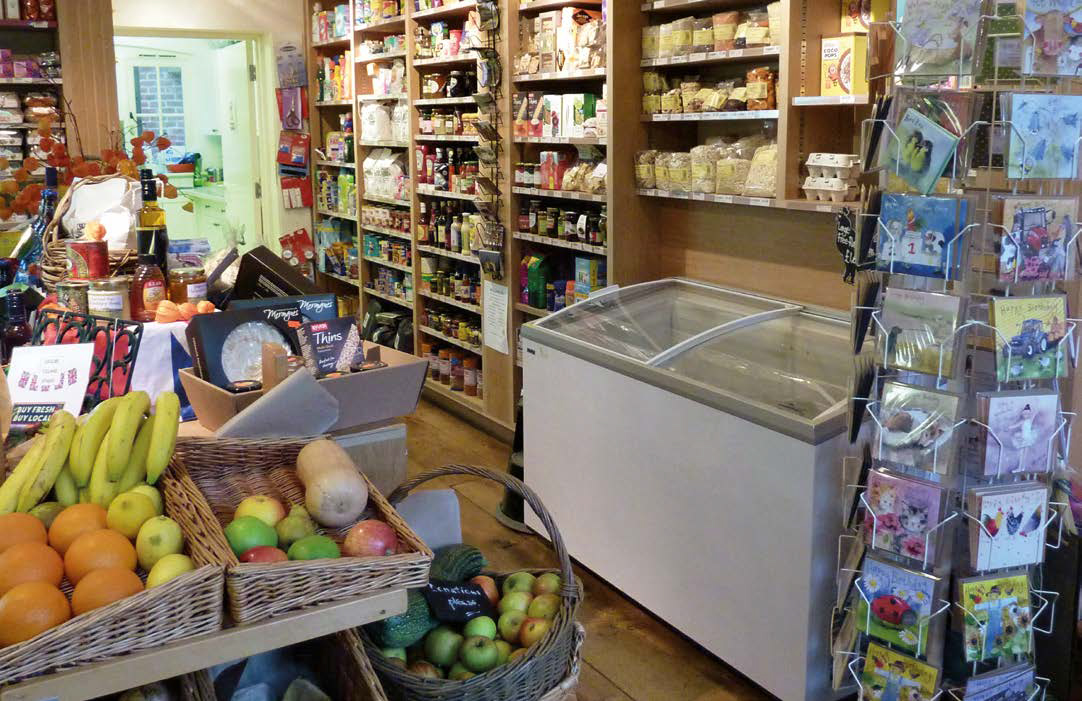Communities that co-operate together, grow together, say two national reports published by the UK’s Plunkett Foundation.
Local pubs and village shops owned by community co-operatives are prospering where private enterprise has failed – both in terms of financial sustainability and the positive social impact they have, the research found.
Plunkett, the leading support organisation for community-owned shops and pubs, released Community Shops: A better form of business and Co-operative Pubs: A better form of business following research into the people-centred ways in which these organisations respond to the needs of their communities – and how communities support them in return.
The research shows that at the end of 2016 there were 348 community shops trading in the UK, providing essential services to 1,400 remote rural communities while creating 1,114 paid jobs and 9,605 volunteer positions. Together, these shops generated a combined turnover of £54m and donated £125,000 to community projects.
Related: Co-op Congress debates how we can turn community assets into co-ops
The report found that no community shops have closed within the last two years, resulting in a 95% long term survival rate.
As well as safeguarding valuable retail services, community shops provide additional services in response to community needs, says the report, from affordable food schemes (42%) and arts activities (62%) to healthcare and wellbeing (71%) and tourism (82%).

The majority of community shops (69%), are registered as community benefit societies, existing to benefit the wider and collective interests of a community, rather than that of its staff, members or committee, with 1% registering as a co-operative society.
That figure is higher for community-owned pubs, with 28% registering as co-operative societies and 61% as community benefit societies.
At a time when pubs numbers in the UK are at an all-time low, the co‑operative pub sector had grown by 15%, says the second report. In 2016, 46 co‑operative pubs were trading across England and Wales (the 50th opened in June 2017) and a further 90 groups were actively exploring setting up a co-operative pub.
Like community shops, co-operative pubs are often integral to the continuing vitality of communities, and in rural villages “can often be the last remaining service in the community”, says the report. “There is therefore potential for them to become hubs of the community offering additional services such as a micro shop, café, post office, meeting room, etc – all enabling people to make greater use of the building and providing greater opportunity for social interaction.
James Alcock, general manager at the Plunkett Foundation believes the number of community owned enterprises across the UK is expected to continue to increase in the coming years, in part because they are a “great leveller”.
“Community co-operatives bring people together of all ages, backgrounds, interests, and give them a purpose to interact,” he said.
“This can benefit new residents who want to meet their neighbours, young parents who feel isolated at home, teenagers seeking work and life experience, the retired seeking opportunities to remain active, and those who live alone or are carers and have no other way of meeting people.
“Put simply, community shops and co-operative pubs reduce social isolation and loneliness.”
- Funded by The Power to Change Research Institute, the reports are based on data sourced from the Financial Conduct Authority and Companies House, electronic questionnaires and follow-up telephone surveys, and with additional data provided by Plunkett Co‑operatives UK. For the full reports, click here (community shops) and here (co-operative pubs).